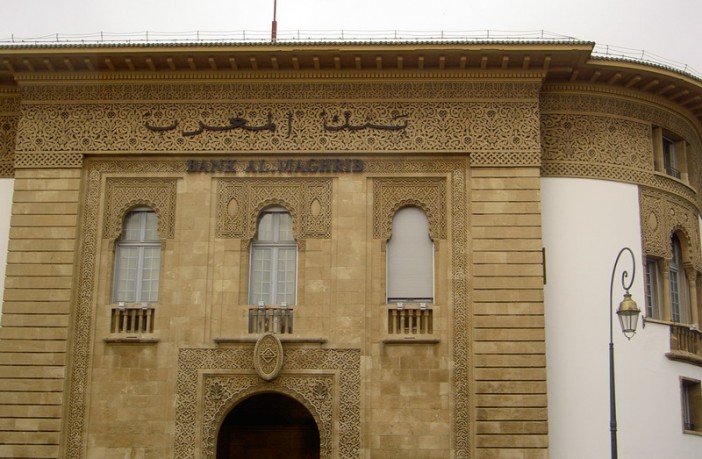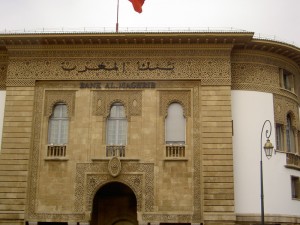Reuters
By Aziz El Yaakoubi
Morocco’s central bank cut its benchmark interest rate on Tuesday to 2.5 percent from 2.75 percent, the second rate cut in three months, as rulers in the North African kingdom feel confident after the drop in global oil prices.
The bank said it seeks to support economic growth while expecting inflation to remain low.
“Considering core inflation forecast … and the continuing improvement in foreign exchange reserves, and in order to support economic recovery, the (bank’s) board decided to lower again the key rate by 25 basis points to 2.5 percent,” it said in a statement.
At its last board meeting, in September, the bank cut the rate to 2.75 percent from 3 percent.
Morocco’s public finances have been improving for the last two years after the government took bold decisions mainly in cutting subsidies and freezing public sector hiring.
But the last cut came after global oil prices dropped to around $60 per barrel as the country remains one of the biggest energy importers in the region.
“It’s historic for us. Never did the central bank cut twice in two meetings,” Morocco’s Central Bank Governor Abdellatif Jouhari told reporters.
Jouahri said he will meet bankers in the next weeks to ensure the rate cut would boost economic activity.
“Everyone has to get involved in our efforts to boost the country’s growth,” he added.
The central bank forecasts gross domestic product to grow 4.4 percent next year, up from 2.5 percent in 2014, thanks to good rainfall which will boost agricultural output.
It said inflation would remain “relatively low, with balanced risks,” forecasting it at 0.4 percent for the whole year 2014, rising to 1.2 percent in 2015.
Morocco subsidises food products and cooking gas, but has ended subsidies for other energy products including gasoline and fuel.
The central bank said it expects the current account deficit to reach 6 percent in 2014, decreasing to 5 percent in 2015 mainly because of the fall in global oil prices.
It also confirmed government expectations to reduce the budget deficit to 4.9 percent of GDP in 2014, and 4.3 percent in 2015.
Foreign currency reserves stood at 177.6 billion dirhams or 5 months and 5 days of import needs.
(Reporting By Aziz El Yaakoubi; Editing by Ralph Boulton)








